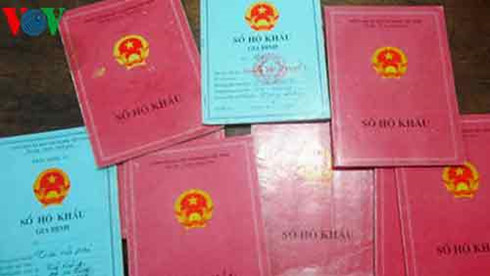Reforms needed to close gap in social service access for migrants
 |
The report also suggests to reduce differences in service and employment access between those with permanent and temporary registration status.
The report, drawing on data from the 2015 Household Registration Survey and qualitative research, says at least 5.6 million people in the five surveyed provinces in Vietnam lack ho khau, including 36% of the population in Ho Chi Minh City and 18% in Hanoi.
The majority of them work in the private sector, especially in manufacturing and for foreign firms. They have limited access to public schools, buying health insurance or even registering motorcycles.
“This study shows that the ho khau system has created inequality of opportunity for Vietnamese citizens,” said Achim Fock, the World Bank’s Acting Country Director for Vietnam. “Further reforms could ensure that migrants have the same access to schools, health care, and employment in the public sector as everyone else. That will encourage people to move to cities and support Vietnam’s economic growth and structural transformation.”
The ho khau system began 50 years ago as an instrument of public security, economic planning, and control of migration. Citizens have mixed views of the existing ho khausystem, and a large majority says the system should be relaxed, because it limits the rights of migrants and induces corruption.
“The Ho Khau registration system is no longer relevant for managing and controlling the Vietnamese society, which has been undergoing drastic changes toward Doi Moi and international integration,” said Dang Nguyen Anh, Vice President of the Vietnam Academy of Social Sciences. “The system should be replaced by a more scientific and modern tool to make people's lives easier and inclusive.”
What the stars mean:
★ Poor ★ ★ Promising ★★★ Good ★★★★ Very good ★★★★★ Exceptional
Latest News
More News
- Congratulations from VFF Central Committee's int’l partners to 14th National Party Congress (January 25, 2026 | 09:46)
- List of newly-elected members of 14th Political Bureau announced (January 23, 2026 | 16:27)
- 14th Party Central Committee unanimously elects To Lam as General Secretary (January 23, 2026 | 16:22)
- List of members of 14th Party Central Committee announced (January 23, 2026 | 09:12)
- Highlights of fourth working day of 14th National Party Congress (January 23, 2026 | 09:06)
- Press provides timely, accurate coverage of 14th National Party Congress (January 22, 2026 | 09:49)
- Press release on second working day of 14th National Party Congress (January 22, 2026 | 09:19)
- Minister sets out key directions to promote intrinsic strength of Vietnamese culture (January 22, 2026 | 09:16)
- 14th National Party Congress: Renewed momentum for OVs to contribute to homeland (January 21, 2026 | 09:49)
- Party Congress building momentum for a new era of national growth (January 20, 2026 | 15:00)
















 Mobile Version
Mobile Version